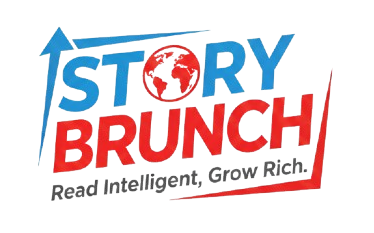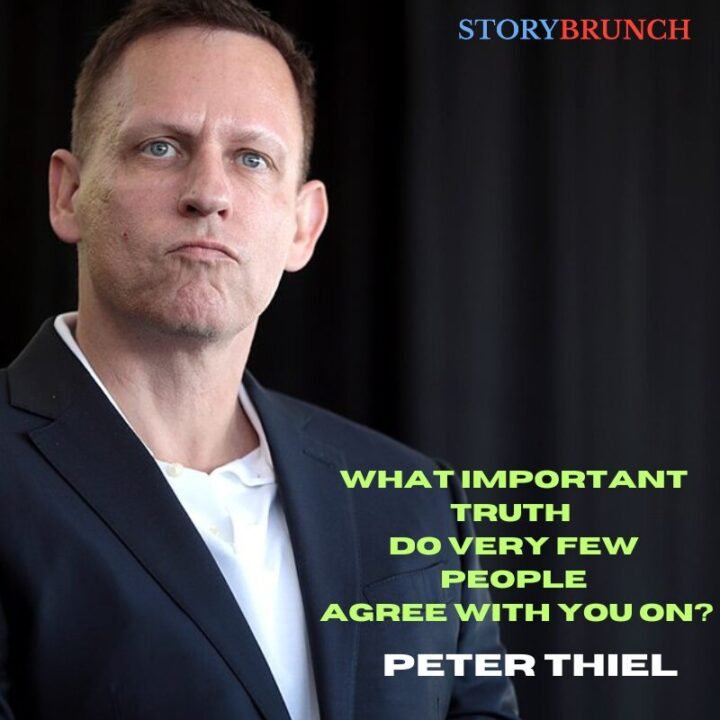Spotting the Future Before Anyone Else
What if you had a magic lens that allowed you to spot the next big thing, years before the rest of the world? That’s exactly what Peter Thiel seems to have. He’s the co-founder of PayPal and one of the earliest investors in companies like Facebook, LinkedIn, and OpenAI. Thiel has a knack for identifying brilliant minds and transformative ideas—long before they hit mainstream success.
His secret? A simple framework of four thought-provoking questions. By asking these questions, Thiel has recruited stars like Reid Hoffman, Sam Altman, David Sacks, Elon Musk, and Max Levchin—leaders who changed our world in ways we once thought impossible.
The Secret Weapon Behind PayPal, LinkedIn, and OpenAI
In 1998, Peter Thiel met a young Max Levchin on Stanford’s campus. Levchin pitched an idea about digital money that banks dismissed as “crazy.” Thiel saw genius. That idea became PayPal, turning a 1M investment into 55M in four years. But Thiel’s real superpower wasn’t just spotting ideas—it was identifying the people behind them.
From Elon Musk to Sam Altman, Thiel’s talent radar has shaped Silicon Valley. His secret? Four simple questions that reveal visionary thinking. Let’s break them down—and learn how you can apply them to spot opportunities (or become the talent everyone fights to hire).
Question 1: “What Important Truth Do Very Few People Agree With You On?”
The Hack: Seek contrarian thinkers who see the future first.
When Max Levchin declared, “Money will be digital encryption,” bankers laughed. Two years later, PayPal sold for $1.5B. Similarly, Reid Hoffman argued in 2003 that “social networks will reshape human interaction.” Critics scoffed—until LinkedIn redefined professional networking.
Why It Works: This question weeds out trend-followers. True innovators articulate unpopular truths that others fear to voice.
Action Step: Ask yourself: What belief do I hold that others dismiss? If your answer feels uncomfortable, you’re on the right track.
Question 2: “What Great Company Is No One Starting?”
The Hack: Look where others aren’t looking.
At 21, Sam Altman told Thiel, “Someone needs to solve artificial general intelligence.” Thiel backed OpenAI’s seed round in 2015. By 2023, it was valued at $80B.
Why It Works: Most entrepreneurs chase crowded markets. Winners solve invisible problems—like David Sacks, who noticed enterprise software sales were broken and built Yammer (sold to Microsoft for $1.2B).
Action Step: List industries you think are “boring” or “solved.” Now ask: Where’s the hidden pain point here?
Question 3: “What Does Nobody Want to Say About This Industry?”
The Hack: Uncover blindspots everyone ignores.
David Sacks called out enterprise software’s flaws. Reid Hoffman criticized how social networks underestimated professional relationships. Both became billion-dollar truths.
Why It Works: Every industry has elephants in the room—taboo truths that insiders avoid. Speaking them aloud signals courage and insight.
Action Step: Study your field’s “unspeakable” flaws. What’s the obvious problem nobody admits?
Question 4: “Do They Have Zen-Like Opposites?”
The Hack: Hunt for paradoxical talent.
Thiel backed Reid Hoffman because he blended analytical rigor and creative intuition—a rare mix that let him reimagine social networks.
Why It Works: Unstoppable innovators unite conflicting traits: visionary yet practical, rebellious yet disciplined.
Action Step: Audit your strengths. Do you pair logic with creativity? Hustle with patience? Cultivate your own “Zen opposites.”
Why Most People Fail Thiel’s Test (And How to Pass It)
Thiel says 95% of people stumble because they:
Recycle conventional wisdom (“AI is the future!”).
Lack conviction in their boldest ideas.
Avoid controversy to fit in.
To Pass:
Think for yourself, not for applause.
Defend your ideas with data and passion.
Embrace criticism—if everyone loves your idea, it’s not groundbreaking.
Why These Questions Matter for Aspiring Entrepreneurs?
Though these four questions are simple, the real magic lies in how deeply candidates think about them. Thiel doesn’t just listen for a quick, rehearsed response; he looks for evidence of conviction and courage. People who give conventional answers, waver under criticism, or cannot clearly articulate their vision typically fail Thiel’s test. By contrast, those who hold an unpopular idea and explain it compellingly often rise to the top of Thiel’s circle of innovators.
For modern entrepreneurs and startup founders, these questions serve as a self-test. Are you confident in ideas that others reject? Do you see opportunities where no one else is looking? Can you identify hidden flaws in your industry, and can you synthesize seemingly opposite qualities—like caution and boldness—into a single perspective? The more convincingly you can answer, the likelier you are to unearth breakthrough opportunities.
Applying the Framework to Build Your Own Empire
If you want to create the next billion-dollar company or simply revolutionize a small corner of the market, start by asking yourself Thiel’s four questions. Reflect on ideas you’ve dismissed as too radical or too niche. Look for points of tension in your industry—places where conventional wisdom goes unchallenged. Then, examine your own skill set and persona. Do you bring together traits that normally conflict? Think of combining discipline and creativity, tenacity and adaptability, or logic and intuition.
Answering these questions honestly can set you apart from the sea of entrepreneurs who follow trends instead of thinking independently. More importantly, it can help you build a venture founded on genuine insight rather than mere market speculation. The world’s most successful innovators—from Max Levchin to Reid Hoffman, from Sam Altman to David Sacks—have shown that spotting hidden truths and acting on them is the ultimate success hack.
The Final Hack: Build Your Own Talent Ecosystem
Thiel’s questions aren’t just for hiring—they’re a mindset. Modern success isn’t about outworking others; it’s about outseeing them.
Your Playbook:
Write down your answers to all four questions.
Find allies who challenge your thinking (Thiel’s PayPal team famously debated ideas ruthlessly).
Bet on outliers—including yourself.
As Thiel proved, the next billion-dollar idea isn’t hiding in a boardroom. It’s in the mind of someone brave enough to say, “I know something you don’t.”
So, ask yourself: Which of these questions can I start using today?
Want more success hacks?
Subscribe for strategies to think bigger, act smarter, and build faster.
Frequently Asked Questions (FAQs) :
- Who is Peter Thiel and how did he become a billionaire entrepreneur?
- What are Peter Thiel’s top investment strategies for startup founders?
- How did Peter Thiel, Elon Musk, and Reid Hoffman build PayPal into a multi-billion-dollar company?
- What business lessons can entrepreneurs learn from Peter Thiel’s Zero to One philosophy?
- How can I emulate Sam Altman’s AI-focused approach to founding a successful startup?
- What were Max Levchin’s keys to success at PayPal and beyond?
- How did Reid Hoffman leverage social networks to become a billionaire through LinkedIn?
- What mindset shifts are essential to replicate the success of billionaires like Elon Musk?
- How can Thiel’s four-question framework help me spot breakthrough ideas for my startup?
- What daily habits and strategies do top entrepreneurs follow to reach billion-dollar valuations?










